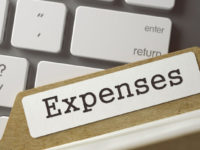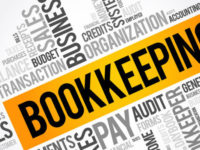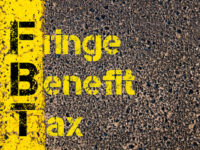Another year, another Federal Budget. But with a general election less than a year away, the focus of the Treasurer, Scott Morrison, was very much on the feel-good factor, presenting an ambitious program of personal tax cuts stretching well into the next decade and announcing a program of nationwide improvements to transport infrastructure to get our congested roads and railways moving again.
For small business, sadly, the good news was thinner on the ground. Still, the cupboard wasn’t entirely bare so here’s my rundown of the key measures small-business owners need to know
The $20,000 instant asset write off lives on
It was originally intended to end on 30 June 2016, then it was extended for a year and now it’s been extended again. Truly, the $20,000 instant asset write off is the tax break that refuses to die and – given its popularity with small-business owners – that’s very good news indeed.
Just in case you don’t know what it is, the instant asset write off scheme allows small businesses to claim an immediate tax deduction on all capital purchases up to $20,000 per item. If cashflow permits, it’s a great way to buy new items to boost your firm’s productivity such as:
- plant and equipment
- technology, such as computers, laptops, phones and printers
- motor vehicles
- office furniture.
In the old days – before the tax break – it was necessary to depreciate the cost of all these items over several years. Now, you can claim all the tax back in one hit. A good thing, we can all agree, which no doubt explains why the Treasurer keeps extending it.
He has now announced that the instant asset write-off will continue for one more year, until 30 June 2019, after which the threshold will fall to a disappointingly ungenerous $1000.
Memo to the Treasurer: can you please make the $20,000 threshold permanent? Small business will love you forever!
If you acquire assets which cost more than $20,000 – and hence can’t be immediately deducted – the rules also remain the same; they go into a general small business pool and are depreciated at 15 per cent in the first income year and 30 per cent each income year thereafter.
If the balance on the pool drops below $20,000, it can then also be immediately deducted.
Remember, although the tax break lives on for one more year, it still makes sense to make capital investments before 30 June this year in order to optimise your tax position this financial year.
Black economy crackdown
If your small business dabbles in the black economy, possibly by failing to record cash sales to customers or failing to deduct PAYG on your payments to contractors and employees, you need to know that the government is coming after you.
There were several measures announced in the Budget which are directed firmly at those who cheat the system including:
- A ban on small businesses accepting cash payments for goods and services costing $10,000 or more. Such payments must be made electronically or by cheque from 1 July 2019.
- The government will stop businesses claiming tax deductions for payments to their employees such as wages where they have not withheld PAYG. Similarly, the Government will remove deductions for payments made by businesses to contractors where the contractor does not provide an ABN and the business does not withhold PAYG.
- From 1 July 2019, businesses in the following industries will need to report to the ATO any payments made to contractors during the year:
- security providers and investigation services
- road freight transport, and
- computer system design and related services.
If you’re in the cleaning or courier business, the same reporting rules will apply from 1 July 2018.
Mark Chapman, Director of Tax Communications, H&R Block Australia
















